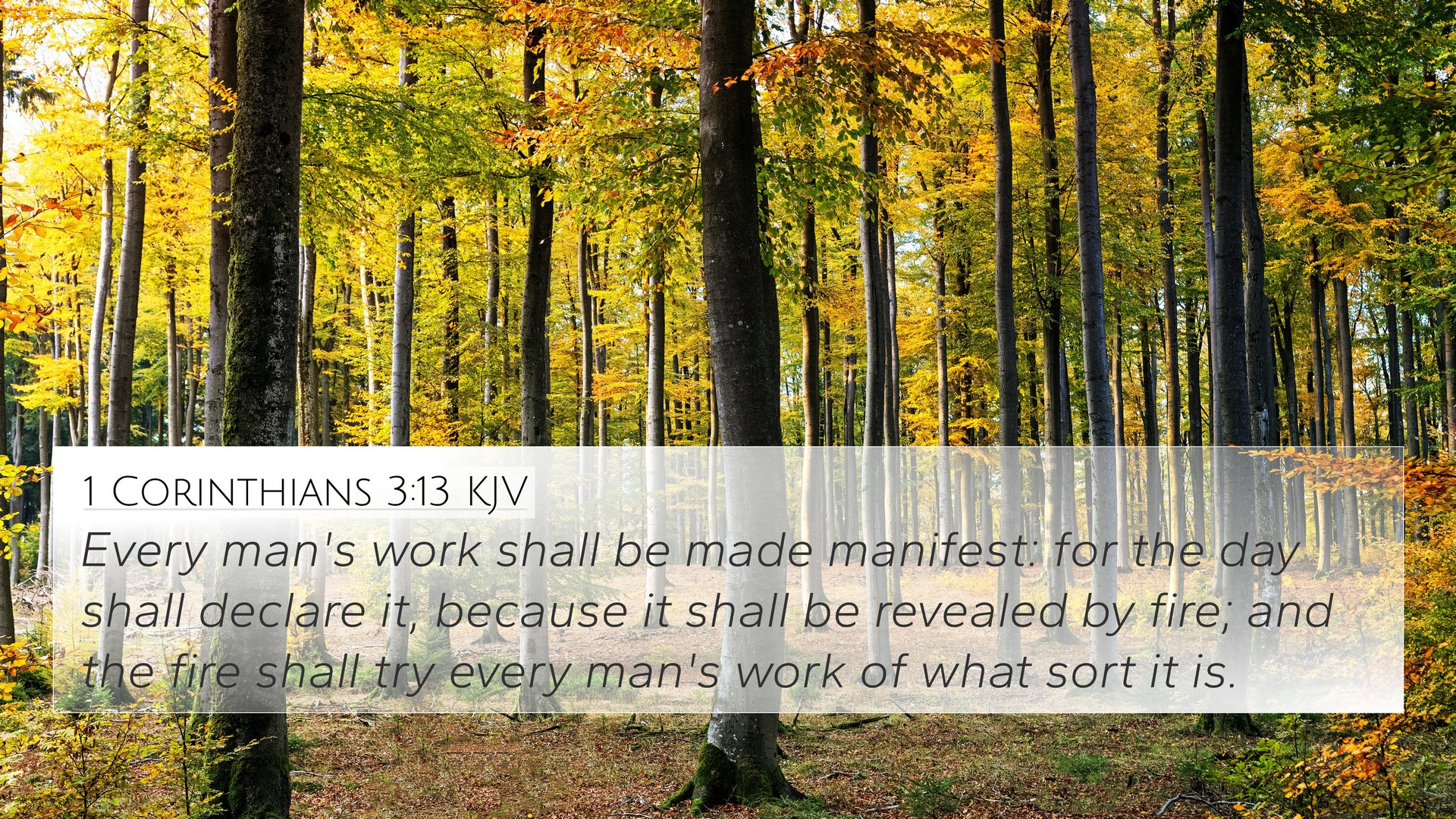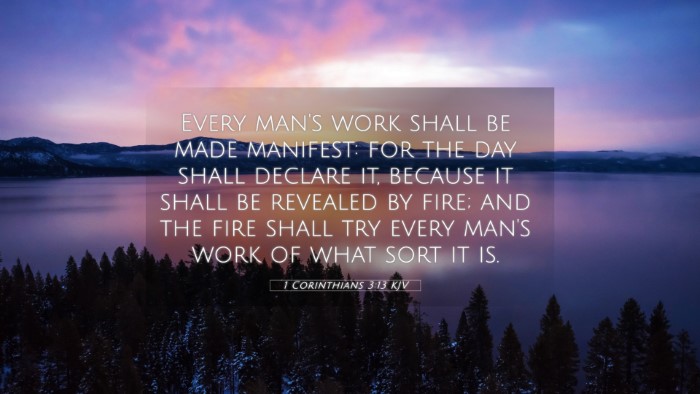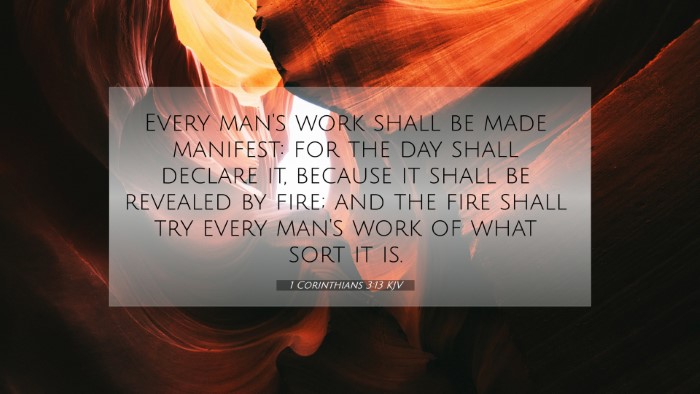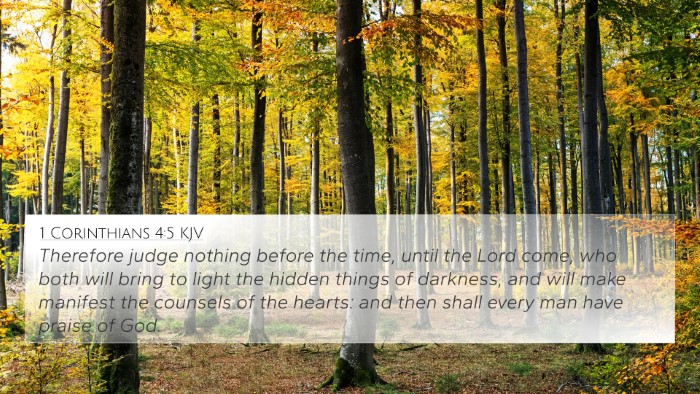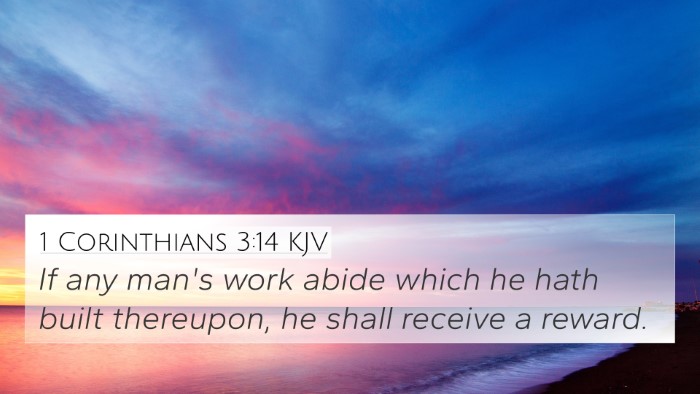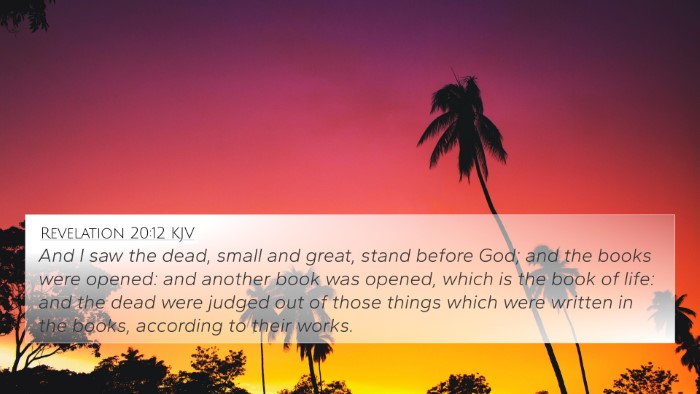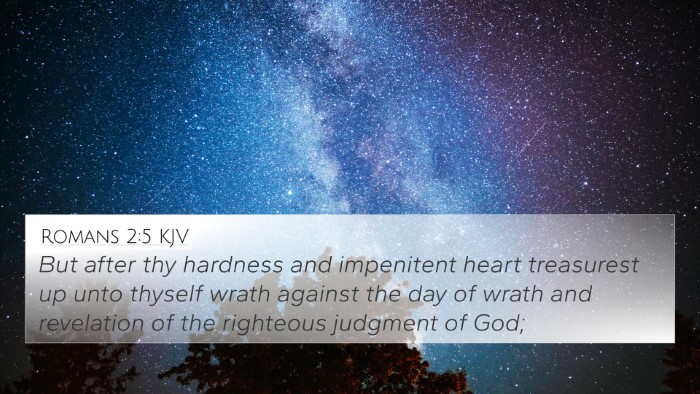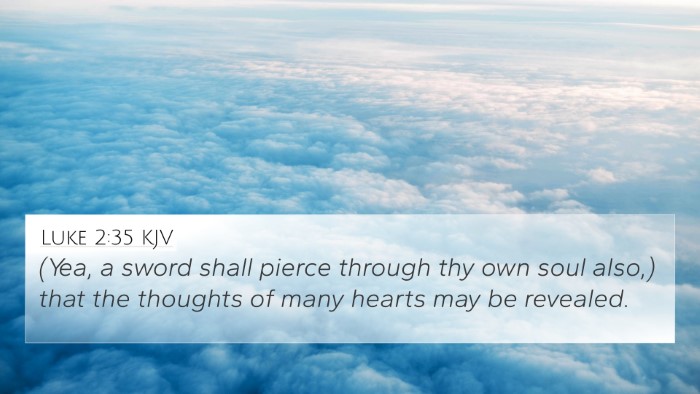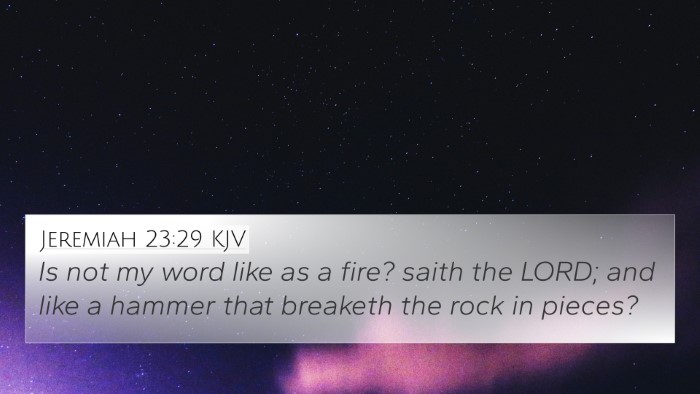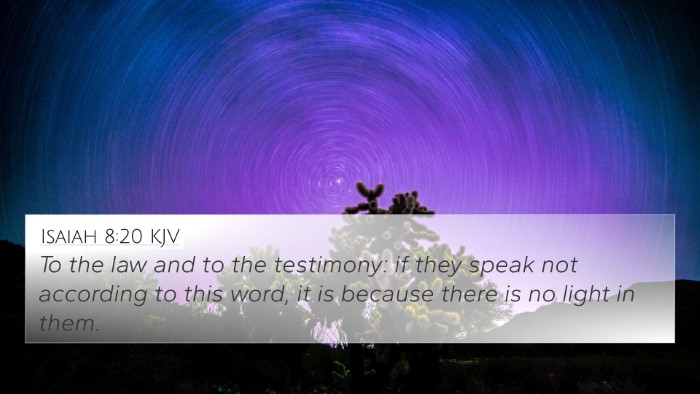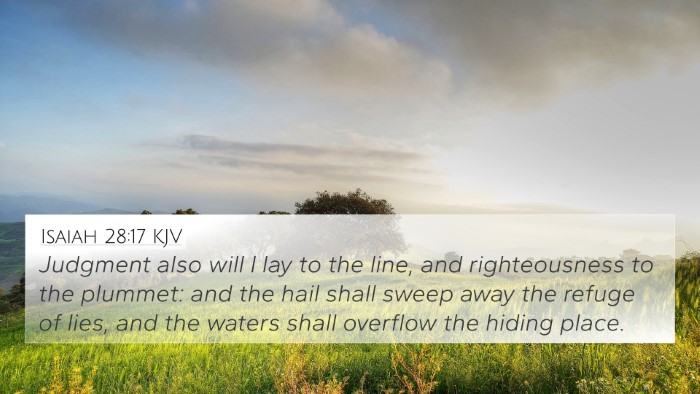Understanding 1 Corinthians 3:13
Verse: "Each one's work will become manifest, for the Day will disclose it, because it will be revealed by fire, and the fire will test what sort of work each one has done." (1 Corinthians 3:13, ESV)
This verse offers profound insights into how God evaluates the works of believers. It speaks about the ultimate judgment of our actions, the purity of our intentions, and the eternal significance of our labor in Christ.
Commentary Summaries
Matthew Henry's Commentary:
Henry notes that the 'Day' refers to the Day of Judgment, a time when all works will be brought to light. He emphasizes the necessity for believers to build on the foundation of Christ appropriately, as the quality of their work will be tested. True believers will find their works, though imperfect, receive God's approval, while worthless works will be destroyed.
Albert Barnes' Commentary:
Barnes emphasizes the destructive nature of the fire mentioned in the verse, representing God's scrutiny. The fire signifies both a testing and a purifying process, revealing the true nature of each person’s works. The essence of a believer's works must reflect purity and sincerity to withstand this divine judgment.
Adam Clarke's Commentary:
Clarke expands on the metaphor of fire, suggesting that it stands for trials and tribulations that believers face, comparing them to a forge that tests metal. He argues that believers should be diligent in their works, ensuring they are worthy of God's reward, as many may suffer loss during the judgment for works done in wrong motives.
Key Themes and Insights
- The Day of Judgment: The verse emphasizes that a day will come when God will evaluate the works of believers.
- Testing of Works: The fire metaphor signifies the scrutiny each work will face.
- Significance of Intent: It's not just the action, but the heart behind the action that is crucial.
- Foundation of Christ: All works must be built upon the foundation laid by Jesus for them to endure scrutiny.
- Hope for Believers: While the judgment of works can be daunting, there is assurance for believers whose works, despite imperfections, align with God's will.
Bible Verse Cross-References
- 1 Corinthians 3:11: "For no one can lay a foundation other than that which is laid, which is Jesus Christ."
- 2 Corinthians 5:10: "For we must all appear before the judgment seat of Christ, so that each one may receive what is due for what he has done in the body, whether good or evil."
- Matthew 7:24-27: The parable of the wise and foolish builders highlights the importance of building on the right foundation.
- Romans 14:10: "For we will all stand before the judgment seat of God."
- 1 Peter 1:7: "So that the tested genuineness of your faith—more precious than gold that perishes though it is tested by fire—may be found to result in praise and glory and honor at the revelation of Jesus Christ."
- Hebrews 6:10: "For God is not unjust so as to overlook your work and the love that you have shown for his name in serving the saints, as you still do."
- Revelation 3:15-17: A reminder that God desires zealousness and sincerity in our works and deeds.
Connections Between Bible Verses
This passage about the judgment of works aligns closely with the themes found throughout the New Testament regarding accountability and the eternal significance of our actions. For instance:
- Linking the Apostolic Teachings: Paul's writings consistently emphasize the theme of living a life that reflects Christ in light of future judgment.
- Connections with the Gospels: Jesus' teachings often reference the importance of actions and intentions, providing parallels with the sentiments found in 1 Corinthians 3:13.
- Inter-Biblical Dialogue: The teachings in both Old and New Testaments provide a cohesive view of divine judgment, reinforcing the need for integrity in one's work.
Thematic Bible Verse Connections
When analyzing the themes of judgment and works, it is helpful to look at passages across the Bible for deeper understanding. Some notable connections include:
- Faith versus Works: The ongoing dialogue in James (James 2:17) connects to the ideals presented in 1 Corinthians about authentic faith leading to good works.
- Parables of the Kingdom: The Parable of the Talents (Matthew 25:14-30) examines how one uses the gifts granted by God, mirroring the testing of our works in 1 Corinthians 3:13.
Conclusion
1 Corinthians 3:13 invites believers to reflect on both the quality of their works and the motivations behind them. Emphasizing the inevitable scrutiny by God, this verse serves to encourage a life built on the solid foundation of Christ. As we seek to understand this verse deeply, tools for cross-referencing, like a Bible concordance, enhance our study and reveal the rich tapestry of Biblical teachings related to similar themes.
